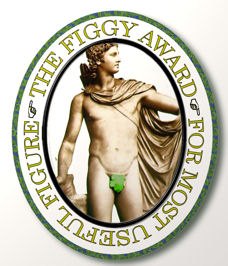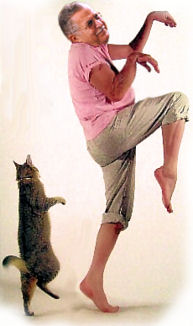Best Figure to Bring an Audience to Its Feet
 Monday, October 29, 2007 at 03:26PM
Monday, October 29, 2007 at 03:26PM  Figaro is on tour, but he has not shirked his figurative duties. He’s written up the best figure for each of several useful purposes.
Figaro is on tour, but he has not shirked his figurative duties. He’s written up the best figure for each of several useful purposes.
Today’s Figgy for Figure Most Likely to Cause a Standing Ovation goes to…
chiasmus (kee-AS-muss), the criss-cross figure. From the Greek letter chi, for “X.”
You think a figure can’t bring an audience to its feet? Watch John F. Kennedy’s inaugural address. He coaxed thousands into the Peace Corps with “Ask not what your country can do for you, ask what you can do for your country.”
That’s a chiasmus, which takes a phrase or clause and repeats it in reverse.
“Don’t serve the time. Let the time serve you.” (Paris Hilton)
“It was a border that came over us. We didn’t come over the border.” (Senator Ken Salazar of Colorado)
“There comes a point where the absence of evidence does indeed become the evidence of absence.” (Senate Intelligence Committee report)
“When the going gets tough, the tough get going.” (Knut Rockne)
Notice that the chiasmus makes a great retort when you want to hold a mirror up to the other opinion — a very unflattering mirror.
Runners-Up:
anadiplosis (an-a-di-PLO-sis), the last-word first-word repetition.
anaphora (ann-AH-for-ah), the first-word repeater.




